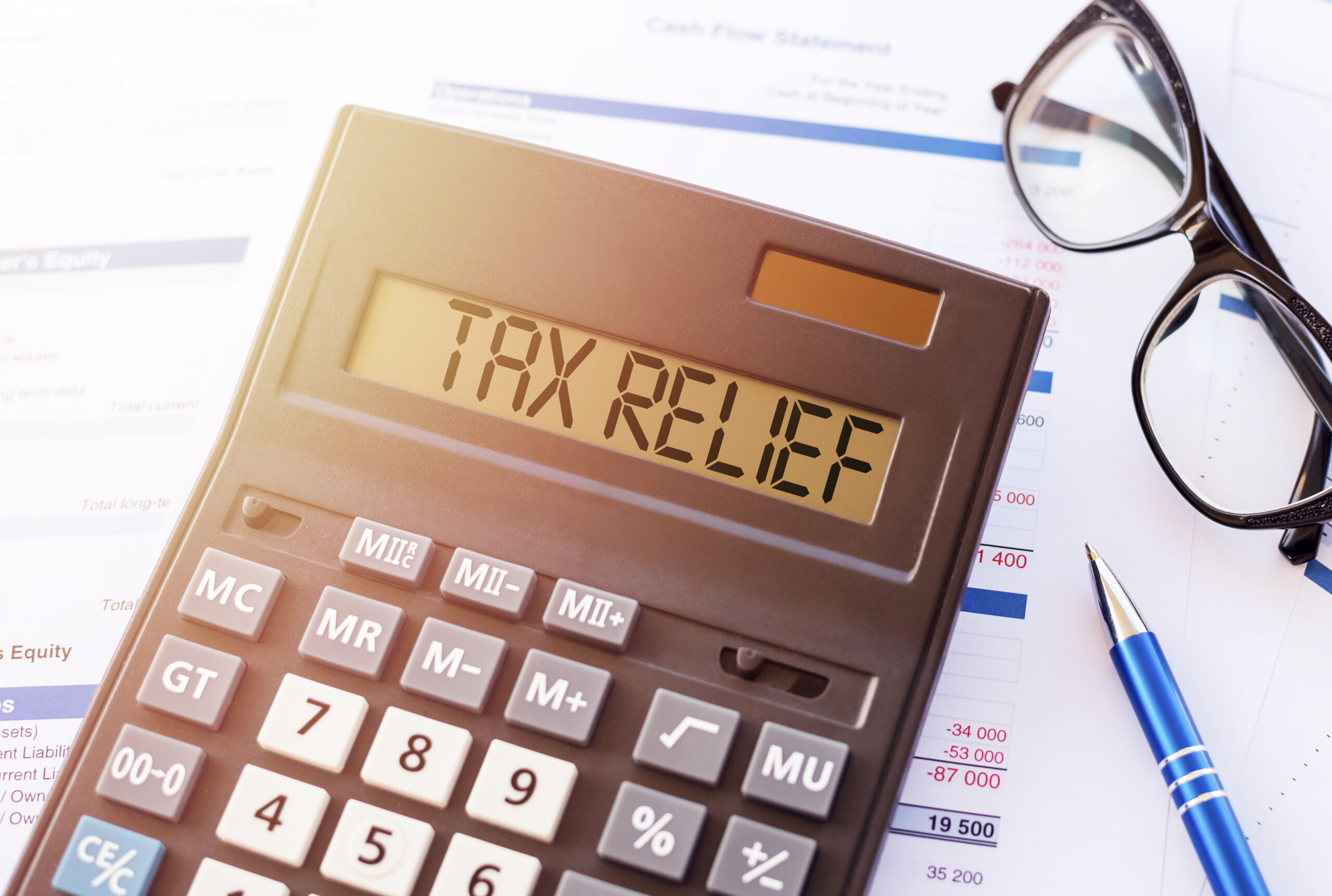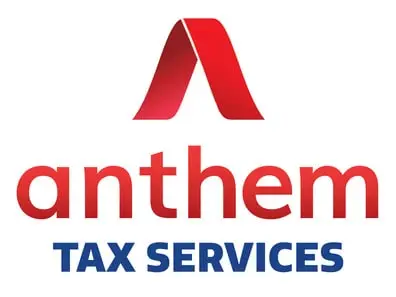How does tax relief work?
Essentially, tax debt relief is incentives and programs designed by the IRS to lower a taxpayer or business owner’s tax bill. Examples include tax credits and other temporary incentives, allowable deductions for pension contributions and tax debt forgiveness and the removal of any tax liens. Your specific tax situation will determine the best form of tax debt relief for you. It’s important to bear in mind the fact that the IRS does not openly promote tax debt relief. That’s why it’s good to seek out a reputable tax service to explore your tax debt relief options and determine which is best for you.



What qualifies you for tax debt relief?
Trying to catch up on your IRS payments can leave you in a financial crunch, and you can experience a great deal of stress, as well. Besides an unexpectedly high tax bill, a natural disaster may have recently swept through your area, making it challenging for you to successfully file your taxes and pay your tax bill. You may also be going through a financial hardship which can allow you to qualify for relief. There are many different situations that could qualify you for tax debt relief.
The Benefit Tax Debt Relief Help Provides
Sure, IRS tax debt relief can lower your tax bill, but let’s dive a bit deeper into its benefits. If you’re unable to pay your tax bill in full, the IRS can garnish your wages. You work hard for every penny you make, and having the IRS cut into your income can throw your budget, financial health, savings plans, retirement and more out of whack. With tax debt relief, you can put a stop to garnishments, getting the IRS out of your hair and bringing balance to your financial health at the same time.
It may be that instead of garnishing your wages, the IRS instead goes straight for the financial jugular and hits you with a bank levy. When that happens, the IRS siphons funds directly from your bank account. You may log into your account and discover your funds have been frozen and money sent to the IRS. Worse, you could discover your funds have been frozen while trying to make a purchase with your debit card, leaving you in quite the bind. Tax Debt relief works to take care of the bank levy so you can bank, swipe and spend without worry.
How to Pay Off Tax Debt?
Not many things in life can be more stressful than owing the IRS money, particularly if you can’t easily lay your hands on it. Fortunately, you have a few options when this happens and this guide covers the different tax relief payment options. It becomes a matter of determining what’s best for your personal situation.
Tax Debt Can Snowball Quickly
Keep in mind that tax debt can get out of hand quickly if you procrastinate about dealing with it. The IRS will tack on penalties and interest to your outstanding balance.
Let’s say you owe the IRS $30,000 for your last two years’ tax returns. You consider going back and amending one or both of them to take advantage of tax deductions you might have overlooked. That’s a good first step, but late penalties and interest are piling on while you debate this option and finally get around to filing two new returns.
You might shave a little off that tax debt by amending your returns, but the interest and penalties assessed by the IRS might offset any savings that may have deducted. It might benefit you more to address the debt first. Your balance owed can be adjusted later if it turns out you don’t owe that much.
Consider an Installment Agreement
The IRS will approve an installment agreement to settle the debt if the taxpayer has filed all tax returns for the last five years and the total balance owed for all years is less than or equal to $50,000. For further details on IRS Installment agreements, skip to installment agreement section.
You would qualify for a streamlined installment agreement if your balance due is $30,000. “Streamlined” simply means that the IRS won’t ask about your current financial situation. You’ll have fewer forms to fill out.
Had you owed less than $10,000, you would have qualified for a guaranteed installment agreement payable over three years.
Qualifying for a streamlined agreement gives you six years.
Minimum Tax Payments
The streamlined agreement depends upon you being able to pay a minimum of about $415 a month, every month: your total tax debt divided by 72 months. You can always pay more in each month, but you can never pay less than the amount you agree to.
You could set up an installment agreement for $450 per month or $515 per month, as long as the amount is at least the $415 minimum payment. But it’s generally advisable to set up your installment agreement for the minimum amount the IRS will accept, then pay extra whenever you can. You’re not limited to your minimum payment. You can pay more voluntarily.
What Happens If You Can’t Afford the Minimum?
You’ll have to contact the IRS to work out a different payment arrangement if you can’t afford the minimum. You must submit Form 9465 rather than apply online and a thorough financial analysis becomes necessary. The IRS will want to know:
- How much money could you come up with to pay your tax debt if you were to sell all your assets? Measure the current value of your assets and subtract any loans against those assets.
- Do you have available credit? Could you borrow money through a credit card or home equity loan to pay the IRS?
- How much money do you have left over each month after you pay your necessary living expenses? This is how much the IRS will expect you to pay every month if you can’t manage the minimum payment.
Not Every Expense Will Count
The critical question is usually how much money you have left over each month after paying your necessary living expenses. Let’s say you earn $4,600 per month in wage income. You must spend $4,350 on living expenses. You have $250 left over each month.
This net difference between your monthly income and your monthly expenses is what the IRS would look for in a payment plan. You can complete IRS Form 433-A or Form 433-F to help you make these calculations, but here’s where it gets tricky.
The IRS might not allow all your expenses. It can disregard certain spending for two reasons: The expense isn’t necessary or it’s higher than average.
This might be the case if you spend $250 a month on the best available cable or streaming package. Is this a necessity? The IRS would say no. You could live a perfectly reasonable lifestyle with basic cable. That $250—or, more likely, $150 of that $250 because paying for some form of cable is acceptable—could go to the IRS instead.
Necessary Expenses
According to the IRS, necessary expenses are those that “are necessary to provide for a taxpayer’s and his or her family’s health and welfare and/or production of income.” They include:
- Food, groceries, clothing, housekeeping and personal care items.
- Housing and utilities. This includes rent, mortgage payments, property taxes, and homeowner’s or renter’s insurance. It also includes telephone service, trash, water, gas and electric, propane, some cable television, and internet service.
- This includes car payments, gasoline, oil changes, maintenance and repairs, and auto insurance. It also includes public transportation such as bus passes, train, and other mass transit fares.
- Health insurance premiums and out-of-pocket medical expenses.
- Child care.
- Term life insurance premiums.
- Estimated tax payments and withholding for the current tax year.
- Installment payments for past due state and local taxes.
- And other expenses if they can be shown to be necessary for health, welfare, or the production of income.
Collection Financial Standards
The IRS will compare your actual spending to averages that vary by region to take into account that some areas have higher costs of living than others. These expense averages are called collection financial standards. The IRS will assume that you need to spend only up to the amount specified by the collection financial standards. Anything over and above that amount is discretionary rather than necessary.
Your mortgage might be $3,000 a month, but if the standard in your area is $1,500, the IRS will most likely add $1,500 back to your disposable income.
The IRS will review your financial documents, including bank statements and pay stubs and other documents, to verify your income and spending if you can’t commit to paying your entire balance off in 72 months.
Other Options
You have a few other options if the IRS isn’t willing to accept the amount you think you can comfortably pay:
- Sell assets to generate some ready cash to pay to the IRS.
- Take out a loan or use credit cards to pay the IRS.
- Request an offer in compromise—a proposal to pay the IRS less than the full amount due.
- Ask for a deferment where the IRS would agree that you don’t have to make payments until your financial situation improves.
Sometimes, the right answer is a mix of these options. Learn more on the types of payment plans on the IRS offers.
Tax Debt Relief in A Natural Disaster
If a federally classified catastrophe, like a hurricane or flooding, affects you and your city or town, the IRS may file an automatic extension and allow you to pay any outstanding taxes you owe at a later date. You are usually eligible if you reside in a federally declared disaster region or if your business operates out of that region faced with natural devastation. Some property losses that may not be covered by homeowners insurance may also be tax-deductible. The IRS has a list of Tax Relief in Disaster situations for which tax debt relief is available to you or your business.
An Overview of Our Tax Relief Services
Wage Garnishment
The Internal Revenue Code authorizes the IRS to garnish the wages of any taxpayer who has unpaid federal tax debt. The IRS will start by mailing warning notices to inform you of your tax payment obligations. If the notices get ignored, the IRS has the authority to impose a federal tax levy on your wages.
The IRS will send your employer a notice to withhold a certain percentage of your wages and send them to the IRS. Federal tax levies will still leave some money to cover your living expenses. State tax levies, on the other hand, are not usually this generous.
Delinquent Tax Returns
Every tax year has a tax deadline for filing tax returns. The deadline is usually April 15th, except during the recent COVID-19 crisis, where it got extended until May 17th. If you file a tax return after the deadline or have unfiled tax returns, it is considered a delinquent tax return. The IRS will still accept delinquent tax returns that date all the way back to six years. However, you can expect late fees and penalties to get charged on top of the original tax amount that you owe.
Tax Liens
Tax liens are another way in which the IRS tries to get the tax money owed. In addition to garnishing wages, they can file a tax lien against any of your assets and real estate holdings. If you earn rental income or some other type of passive income from your assets, they can claim it to pay your tax debts.
Tax Levies
The IRS can use tax levies to directly seize any of your assets, wages, and properties. Not only can they go after your employment income, but they can seize your car, home, retirement accounts, and checking & savings accounts. That is why you need to take all IRS tax notices seriously before tax levies are imposed.
First Time Penalty Abatement
If it is the first time you’ve ever incurred federal tax debt, you may get approved for abatement of your tax penalties. This would allow your tax penalties for a single tax year to get reduced, along with the interest charges too.
Offer In Compromise
If you experience financial hardship and cannot pay the taxes owed, the IRS may be willing to compromise by reducing your total tax debt. Learn more the Offer In Compromise program.
Partial Payment Installment Agreement
If you and the IRS agree on reducing your total tax debt obligation, they may be willing to accept partial installment payments toward the total balance. That way, you don’t have to pay the entire balance at once.
Currently Non-Collectible
If the IRS recognizes your financial hardship as legitimate, they may temporarily suspend all of their tax collection efforts and levies against your assets until your financial situation gets better. This is known as a Currently Non-Collectible status.
Innocent Spouse Relief
If you file a joint tax return with a spouse and they inaccurately reported certain items on it, the IRS may be willing to reduce or eliminate the taxes, penalties, and interest charges that were imposed.
Injured Spouse
Sometimes when you file a joint tax return, one spouse may owe money while the other may be entitled to a refund. However, the IRS may apply one spouse’s refund to the tax debts owed by the other spouse. In this case, you may request for some of that tax refund to get paid back to you.
Penalty Abatement
If certain events in your life prevented you from paying your taxes, you might be entitled to have your tax penalties and interest charges reduced.

